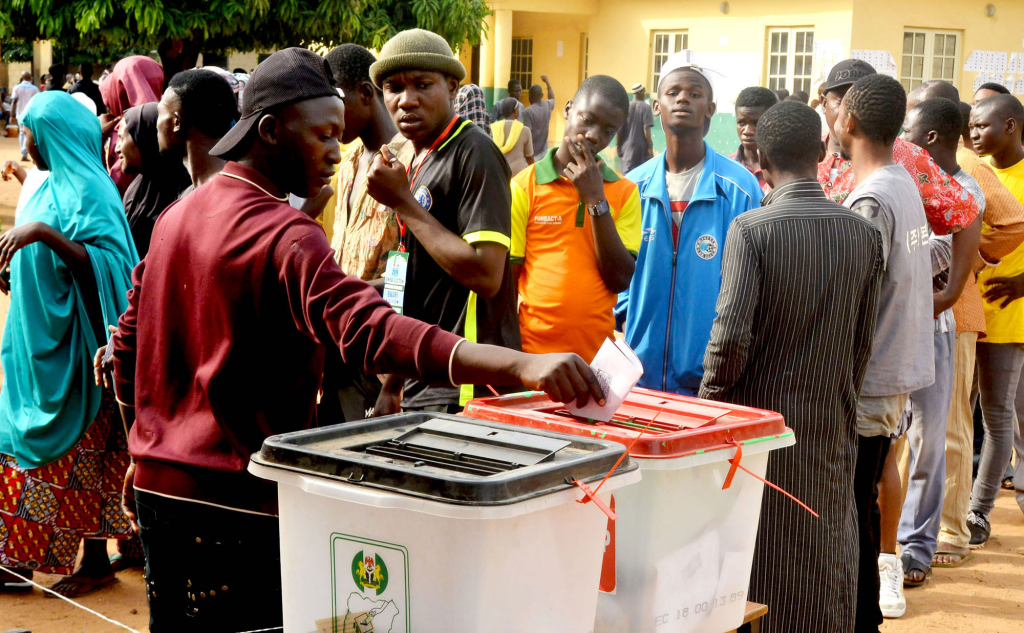
The 2023 Nigerian presidential election will be held on 25 February 2023 to elect the president and vice president of Nigeria.
It is important for the candidates and their supporters to note that even if their preferred candidate receives the most votes in the election, they must meet a second condition to be declared the winner.
Most elections around the world simply require the winning candidate to receive the highest number of votes in order to get elected. However, winning some elections requires fulfilling certain additional provisions to ensure that the winning candidate has a significant amount of support across the country. This is the case in Nigeria, where presidential and gubernatorial candidates are required to receive at least 25 per cent of the votes in two-thirds of the states, or local governments in the case of states, in order to be declared winners and form the next government as per Section 134 (2) of the Nigerian constitution for the presidential race and Section 179 (2) for governorship races.
Unfortunately, the 2007 election results were not published in the necessary detail for in-depth analysis amidst allegations of widespread rigging. Umaru Yar’Adua, the nominee of the PDP, received 24.6 million votes to be returned elected. Mr Buhari, again on the platform of the ANPP, received just 6.6 million votes. While Mr Yar’Adua easily passed the first requirement, the lack of a detailed breakdown does not allow us to prove how he passed the second requirement.
Incumbent APC President Muhammadu Buhari is term-limited and cannot seek re-election for a third term.
Other federal elections, including elections to the House of Representatives and the Senate, will also be held on the same date while state elections will be held two weeks afterward on 11 March. The winners of the election will be inaugurated on 29 May 2023, the former date of Democracy Day.
Party primaries were scheduled for between 4 April and 9 June 2022 with the Peoples Democratic Party nominating former Vice President Atiku Abubakar on 28 May while the All Progressives Congress nominated former Governor of Lagos State Bola Tinubu on 8 June.
For the less politically represented Labour Party and New Nigeria Peoples Party, former Governor of Anambra State Peter Obi was nominated on 30 May and former Governor of Kano State Rabiu Kwankwaso was nominated on 8 June, respectively. In the weeks after the primaries, vice presidential running mates were announced with Abubakar choosing Governor Ifeanyi Okowa on 16 June while his main opponents initially picked placeholder running mates before later substituting in substantive nominees.
Obi selected former Senator Yusuf Datti Baba-Ahmed on 8 July, Tinubu picked Senator Kashim Shettima on 10 July and Kwankwaso chose pastor Isaac Idahosa on 14 July.
After the first term of Muhammadu Buhari as President, he won re-election to the office as the nominee of the All Progressives Congress by defeating Atiku Abubakar of the People’s Democratic Party with a margin of 14 percentage points—nearly 4 million votes.
For the legislative elections, the APC solidified its majorities in both the House of Representatives and the Senate after nearly losing the majorities due to defections in 2018.
On the state level, the PDP gained two in total as the party gained four governorships from the APC while the APC gained two governorships from the PDP.
During the first two years of the 2019–2023 term, the APC expanded slightly through the defections of dozens of state and federal legislators and three governors—Ebonyi State’s Dave Umahi, Cross River State’s Benedict Ayade, and Zamfara State’s Bello Muhammad Matawalle—but went through a prolonged leadership crisis; for the PDP, the losses through defection took a toll but the party resolved its leadership crisis and held a peaceful convention.
During the second half of the term, both parties were hit by defections but the APC held its long-postponed convention and the PDP underwent public disputes over not zoning its presidential nomination.
Ahead of Buhari’s second term, his promises included the completion of in-process rail lines and other infrastructure projects, the further inclusion of women in government, educational reform, and increasing anti-corruption initiatives.
In terms of his performance, the administration was commended for improving the agriculture sector, finishing infrastructure projects, successful advances in the fight against terrorists in the northeast, securing the return of previously looted public funds from abroad, and increasing the minimum wage.
However, he faced criticism for abandoning anti-corruption initiatives, poor quality of life, an increasingly dire security situation outside of the northeast (bandits and some terrorist expansion in the North West, herder-farmer and interethnic conflicts in the North Central, pirates and illegal oil bunkering gangs in the Niger Delta, and a violent separatist movement in the South East along with nationwide kidnapping and security force brutality epidemics), and increasing national debt.
Buhari also came under fire for instituting a seven-month long national ban on Twitter after the site removed an abusive tweet he posted in reference to the Civil War; the ban was decried as a failed attempt at censorship.
Another key source of controversy was the administration’s handling of the October 2020 protest wave of the End SARS movement with the most fervent criticism emerging over the Lekki massacre when soldiers in Lagos killed multiple peaceful protesters before the Army and administration attempted to deny the shooting ever took place.
Buhari also had to contend with a fluctuating, but consistently low, approval rating.






